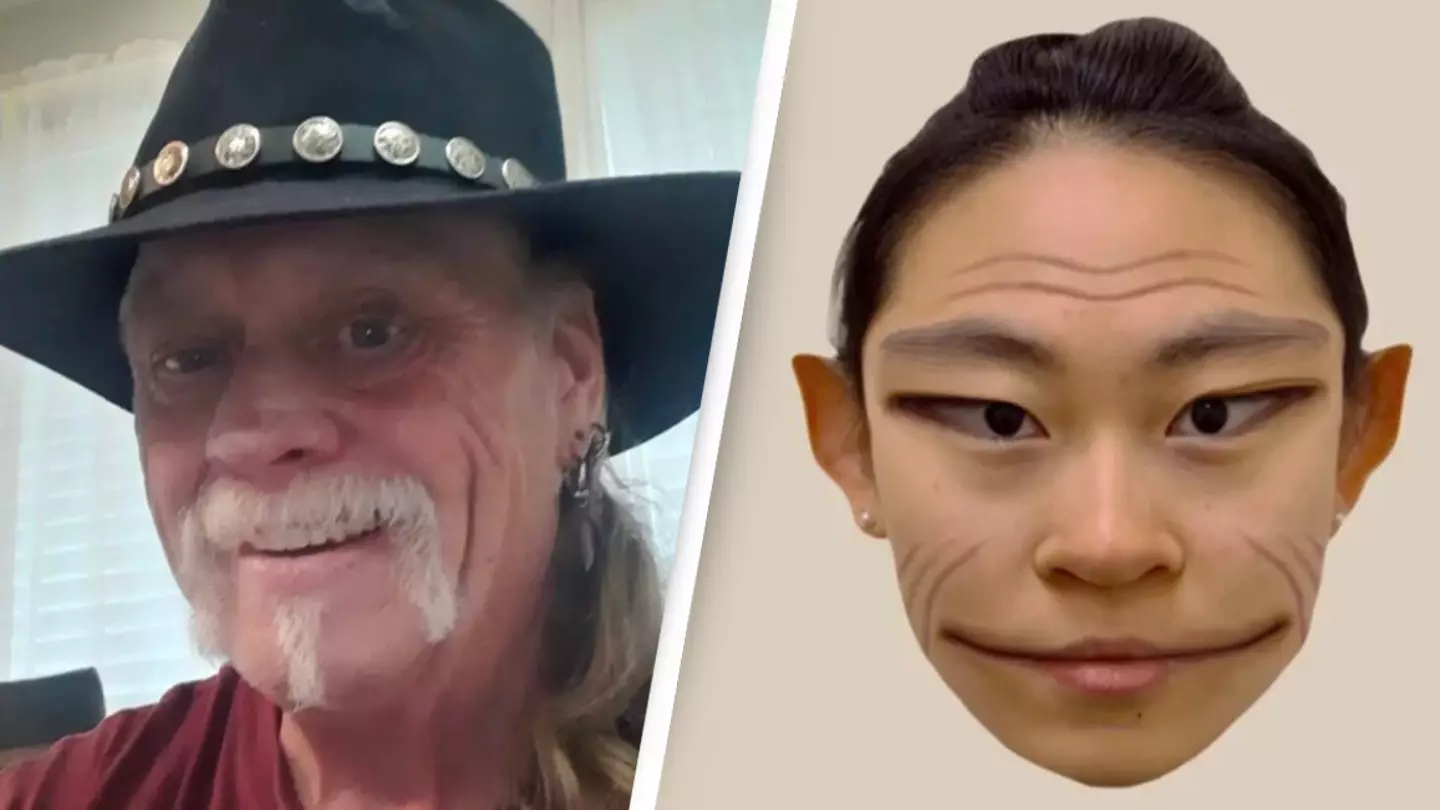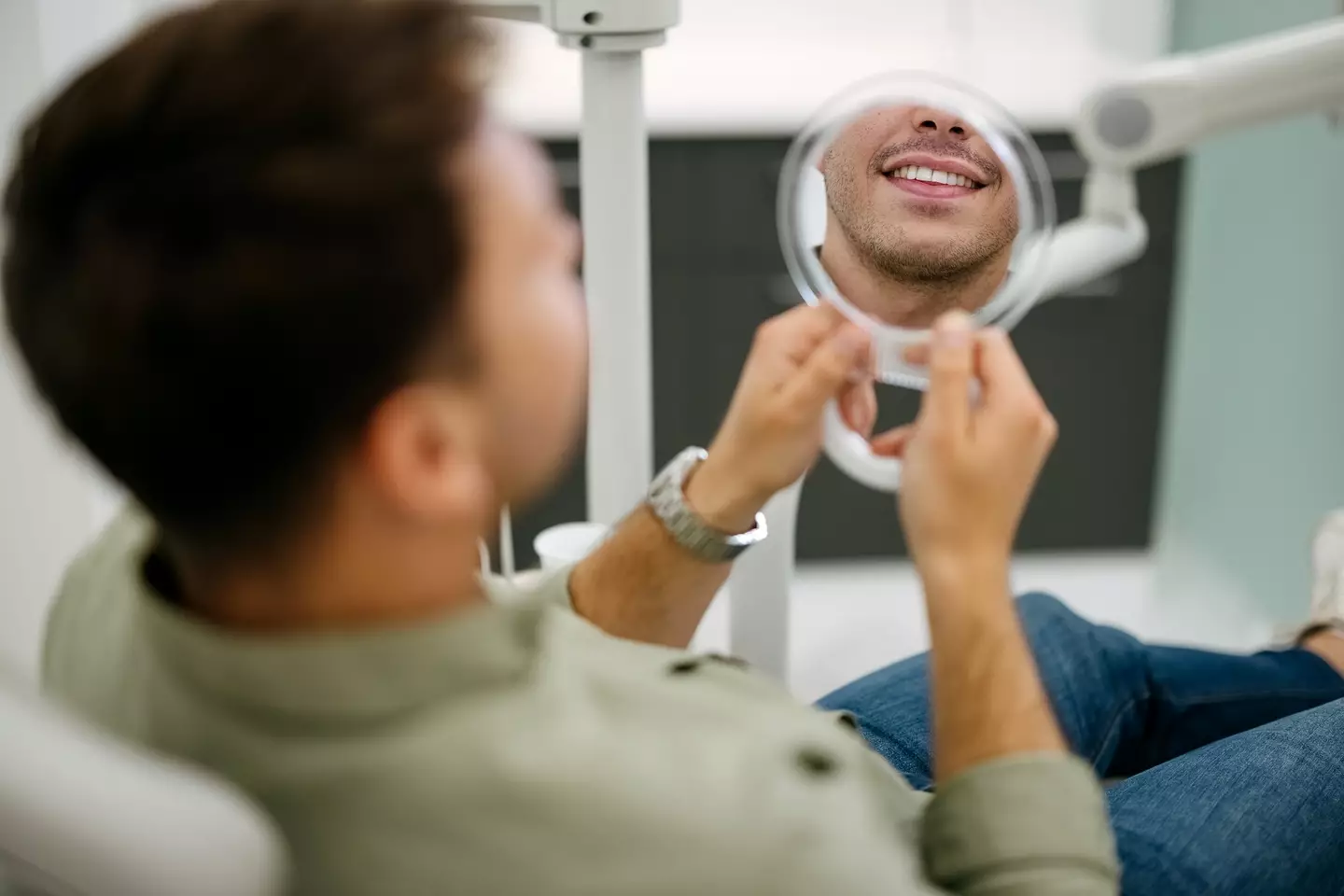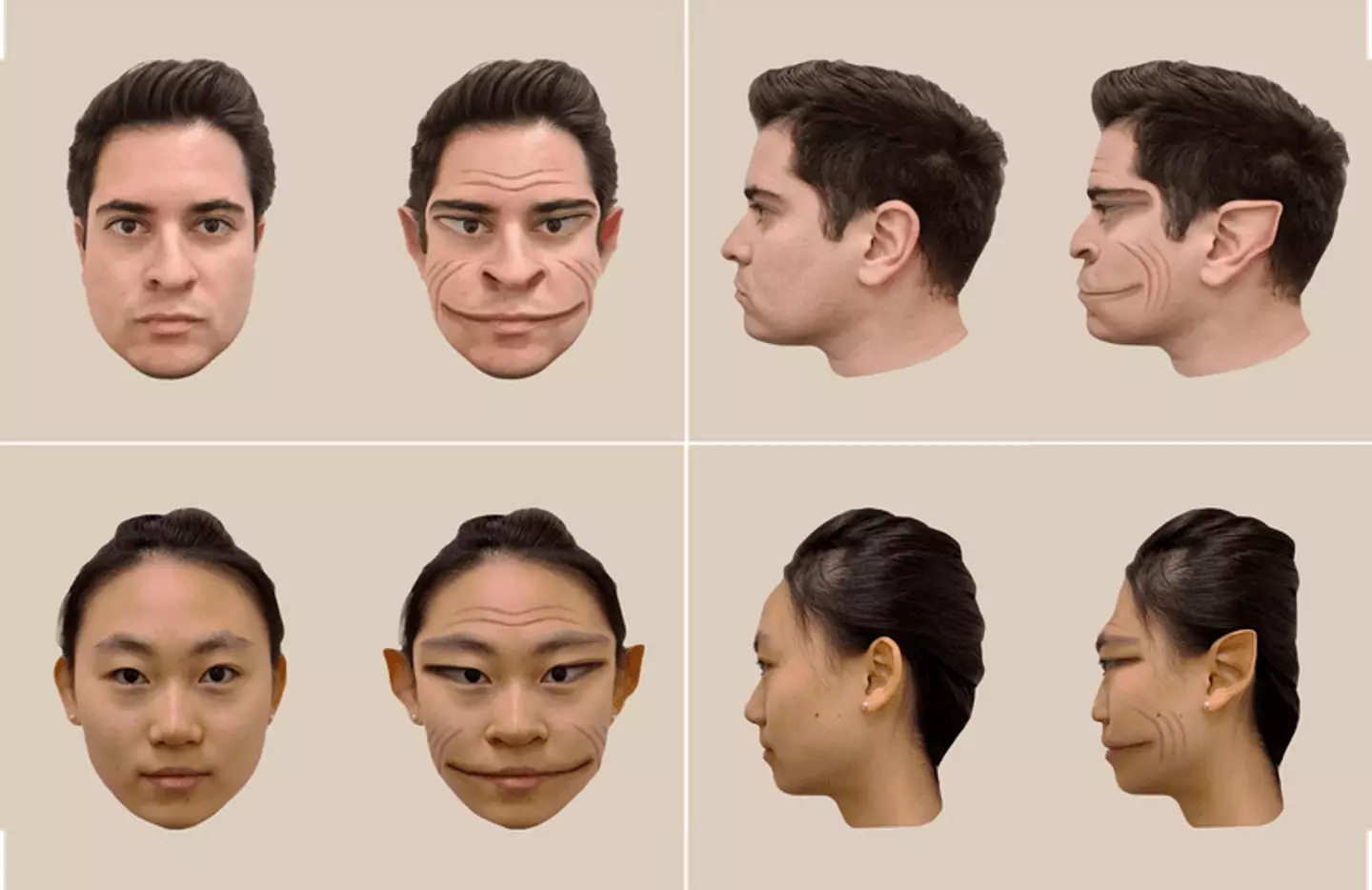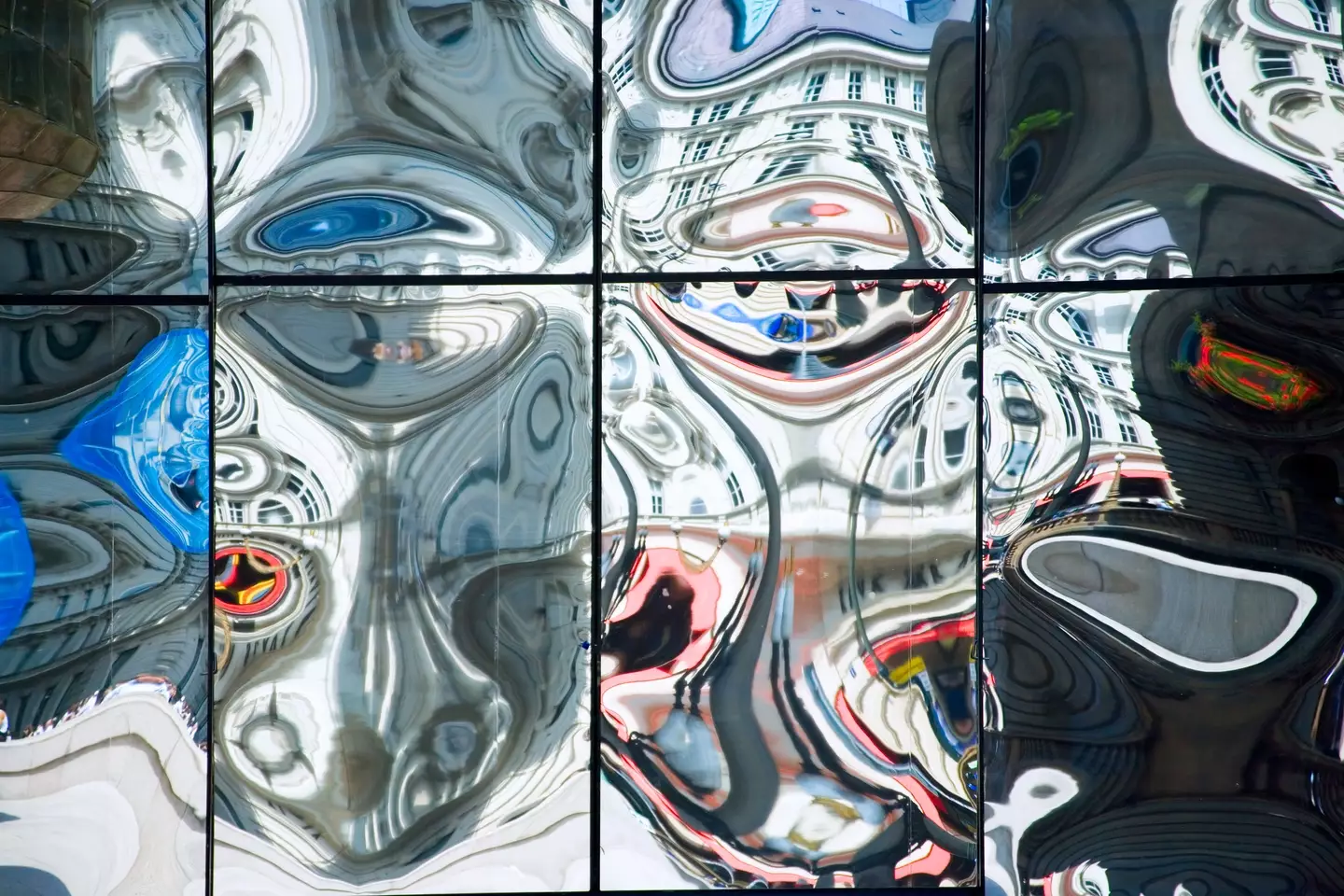
A rare and terrifying condition that impacts just 81 people around the world affects the way they see faces.
We'll never truly know, but we assume that the way we see the world is the same, or at least similar, to other people.
For example, does everyone interpret the sky as being blue? And what about other people? Do they look the same to one person, as they do to another?
Well, for a rare minority of people, the answer is no.
Advert

Prosopometamorphopsia (PMO) is thought to be extremely rare with only 81 known cases across the world, so little is known about the condition.
However, for the very first time, research has been able to provide a visual on how people's faces look to this small minority.
Turns out, those with the condition see other people's faces as distorted, with some likening the effect to a 'funhouse mirror'.
In images provided by the study's lead author Antônio Mello - a PhD student in the Department of Psychological and Brain Sciences at Dartmouth College - the strange demonic way in which people with a condition has been revealed.
Of course, it's important to note that the distortions will differ depending on the person.

Mello wrote in the study, published in EurekAlert: "In other studies of the condition, patients with PMO are unable to assess how accurately a visualization of their distortions represents what they see because the visualization itself also depicts a face, so the patients will perceive distortions on it too."
Recently, one man has spoken out about the condition, after experiencing the rare phenomenon out of nowhere.
Victor Sharrah, 59, from Nashville, woke up one day to realize his surroundings were distorted.
"I just woke up and was sitting on the couch watching TV when my roommate came into the room, and (looking at him) I’m like, ‘What am I seeing?’ Then his girlfriend walked in and her face was the same," he told CNN.
Victor found that once 'normal' faces now had disturbing features.
"Imagine waking up one morning and suddenly everybody in the world looks like a creature in a horror movie," he added.

Given the rarity of the condition, some patients have been misdiagnosed, with multiple being told they had mental health conditions.
Senior author Brad Duchaine, a professor of psychological and brain sciences and principal investigator of the Social Perception Lab at Dartmouth, explained: "We've heard from multiple people with PMO that they have been diagnosed by psychiatrists as having schizophrenia and put on anti-psychotics, when their condition is a problem with the visual system.
"And it's not uncommon for people who have PMO to not tell others about their problem with face perception because they fear others will think the distortions are a sign of a psychiatric disorder. It's a problem that people often don't understand."
Topics: Health
